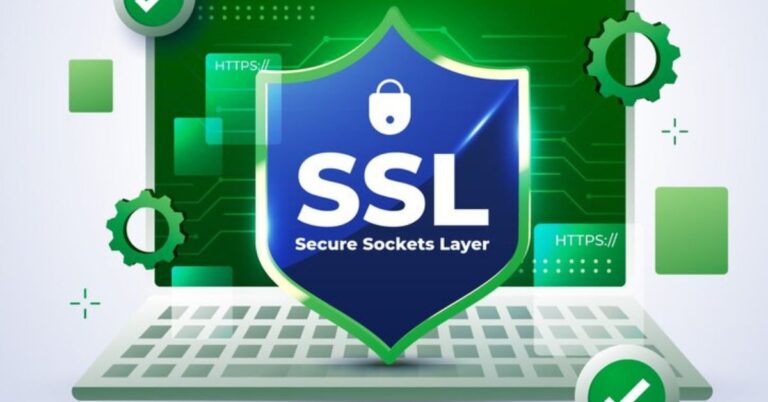Introduction to SSL VPNs
An SSL VPN (Secure Sockets Layer Virtual Private Network) is a sophisticated technology that enables remote users to connect securely to a company’s internal network. With the surge in remote work culture, accelerated by global events like the COVID-19 pandemic, SSL VPNs have become indispensable for maintaining secure and efficient business operations.
SSL VPNs offer a robust solution for secure communication over the internet. These systems provide encrypted tunnels that ensure sensitive information remains confidential, safeguarding it from interception by unauthorized users. This level of security has become increasingly crucial as businesses continue to handle growing volumes of data that, if compromised, could lead to significant financial and reputational damage.
How SSL VPNs Work
SSL VPNs utilize the secure sockets layer (SSL) protocol to encrypt data traffic between the remote user and the internal network, forming a safe pathway. This process ensures that sensitive information is safeguarded against potential interception. The encryption employed uses advanced cryptographic techniques to maintain data integrity and confidentiality.
The connection process begins when a user initiates communication with the SSL VPN through a web browser or dedicated application. The VPN server subsequently authenticates the user. Upon successful authentication, an encrypted tunnel is established, securing data transmission. This encrypted link protects the data and validates the user’s identity, offering an essential security layer against unauthorized access.
Benefits of Using SSL VPNs
Implementing SSL VPNs offers numerous advantages, making them an attractive option for businesses aiming to boost their security measures:
- Enhanced Security: SSL VPNs provide robust encryption that effectively protects data transmitted over the internet from interception and tampering, ensuring confidentiality and integrity. This high level of security helps organizations comply with regulatory requirements and protect their valuable data assets.
- Universal Accessibility: Remote users can securely access the internal network with an internet connection from any device. This facilitates remote work, boosts productivity, and supports seamless business operations by enabling employees to work from anywhere without jeopardizing security.
- User-Friendliness: SSL VPNs require only a web browser for initiation. They are straightforward to deploy and use, eliminating the need for extensive technical knowledge and the installation of specialized client software. This ease of use allows businesses to implement solutions and securely connect their teams quickly.
SSL VPNs vs IPSec VPNs
SSL and IPSec VPNs serve the critical function of securing remote connections but differ significantly in their operation and use cases. SSL VPNs are more accessible to deploy and use, requiring only a web browser for access. This simplicity makes them particularly suitable for businesses with significant remote workforces, ensuring easy access and minimal setup.
Conversely, IPSec VPNs operate at the network layer, securing all IP-based applications. This approach is better suited for environments that require a comprehensive security framework. However, IPSec VPNs often require specialized client software and involve a more complex setup process. While they offer advanced security features, they may not be as user-friendly as SSL VPNs. The choice between the two often depends on the organization’s specific needs and technical proficiency.
Use Cases of SSL VPNs
SSL VPNs are employed across various scenarios, reflecting their versatility and reliability:
- Facilitating Remote Work: SSL VPNs empower employees to securely access company resources from remote locations, such as home offices, maintaining operational continuity and flexibility. This capability is precious during unforeseen events or emergencies that prevent employees from physically accessing the office.
- Secure Contractor Access: They provide third-party contractors with controlled access to specific systems, ensuring sensitive data remains safe while enabling necessary collaboration. This feature supports smooth cooperation with partners and vendors without compromising security standards.
- Supporting BYOD Policies: SSL VPNs allow secure access to internal networks from personal devices in accordance with Bring Your Device (BYOD) policies. This accommodates diverse working preferences and enhances employee satisfaction by enabling them to use familiar devices without risking data security.
Future of SSL VPNs
As cyber threats evolve, SSL VPN technologies must advance to keep pace. Future developments may include:
- Improved encryption algorithms.
- Seamless integration with other security technologies.
- More intuitive user interfaces that enhance security and usability.
These advancements will likely address the growing complexity and sophistication of cyber threats.
The growing importance of remote work will undoubtedly drive innovations in this field. Emerging technologies, such as quantum computing, have the potential to revolutionize current encryption standards, prompting the need for quantum-resistant algorithms. Furthermore, incorporating artificial intelligence within cybersecurity frameworks can enhance proactive threat detection and response capabilities, further securing SSL VPN deployments against sophisticated cyber threats. Integrating AI and machine learning can also improve the efficiency and effectiveness of security measures, making them more adaptive and responsive.
Tips for Choosing an SSL VPN
Selecting the right SSL VPN solution is critical for protecting your business’s sensitive data. When choosing an SSL VPN, consider these key factors:
- Security Features: Prioritize VPNs with robust encryption and advanced security features to ensure data protection and minimize vulnerabilities. Look for features like multi-factor authentication, endpoint security, and comprehensive logging and monitoring capabilities.
- User Experience: Opt for VPNs that provide an intuitive, user-friendly experience. Solutions that are easy to deploy and manage reduce the burden on IT teams and enhance user satisfaction. Ensure the user interface is intuitive and the solution offers clear guidance and support resources.
- Compatibility: Ensure the selected VPN is compatible with your existing systems and devices to facilitate smooth integration without necessitating significant infrastructure changes. Compatibility with various operating systems, browsers, and mobile devices is essential for broader access and user flexibility.
- Support and Maintenance: Choose a provider that offers reliable technical support and regular updates to address any issues promptly and maintain optimal security levels. The availability of 24/7 support, detailed documentation, and continual updates is indispensable for ongoing security and operational efficiency.

